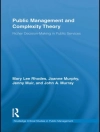The Modern State and Its Enemies considers the historical intellectual developments that provided the fundaments of the modern state, informed the key theoretical questions arising in the democratic context, and shaped the relationship between (state) sovereignty and (individual) liberty. The modern state as a nation-state is thus based on the relationship between its territory, its people and its sovereign authority. As a result, nationalism and minorities policy are issues that are key to the state’s self-conception. But historically, these have also been repeatedly used as weapons against the state, manifesting in separatism, irredentism and antidemocratic agitation. Both antisemitism and right-wing extremism have always stood in opposition to the democratic state and continue to do so. Antisemitism in particular is antithetical to modernity as it fundamentally rejects equality and individual liberty. This book presents its arguments in theoretical, historical and sociological terms, with a particular focus on examples from the German context.
表中的内容
1. Introduction: State Theory and Democracy; 2. Immortalising the Mortal God: Hobbes, Schmitt and the Ambivalent Foundations of the Modern State; 3. Guardian of Democracy? Theoretical Aspects of Police Roles and Functions in Democracy; 4. The Will of the People? Carl Schmitt and Jean-Jacques Rousseau on a Key Question in Democratic Theory; 5. No Sovereignty without Freedom: Machiavelli, Hobbes and the Global Order in the Twenty-First Century Nationalism and Minorities; 6. The Concept of Ethnic Minorities: International Law and the German-Austrian Response; 7. Carl Schmitt’s Legacy in International Law: ‘Volksgruppenrecht’ Theory and European ‘Grossraum’ Ideas from the End of World War II into the Present Day; 8. The German Myth of a Victim Nation: (Re-)presenting Germans as Victims in the Debate on Their Flight and Expulsion from Eastern Europe Antisemitism and Right-Wing Extremism; 9. On the Political Theory of Antisemitism; 10. Antisemitism in Eastern Europe: Theoretical Reflections in Comparative Perspective; 11. Right-Wing Extremism and Right-Wing Populism: Conceptual Foundations; 12. Renaissance of the New Right in Germany? A Discussion of New Right Elements in German Right-Wing Extremism Today; Index.
关于作者
Samuel Salzborn is adjunct professor for political science at the Institute for Political Science, University Giessen, Germany, and visiting fellow at the Centre for the Study of Democratic Cultures and Politics, Rijksuniversiteit Groningen, The Netherlands.












